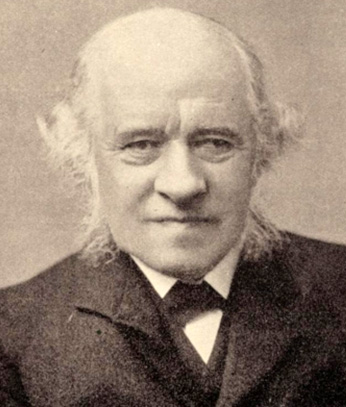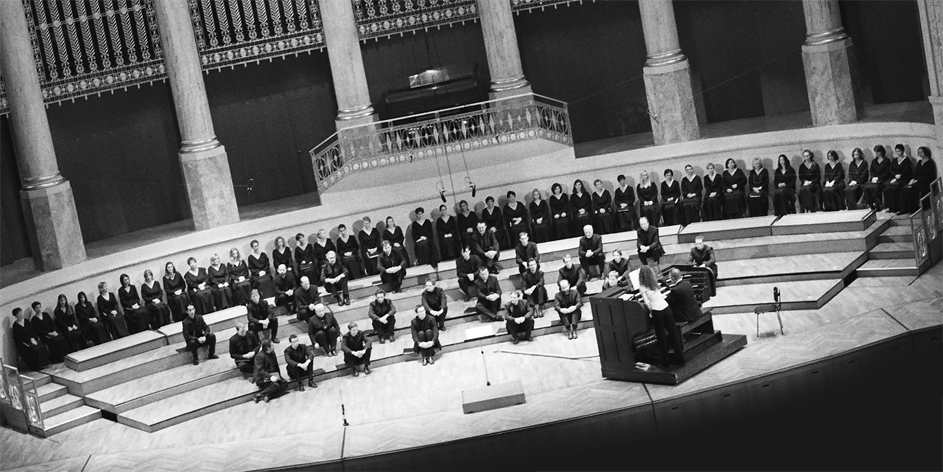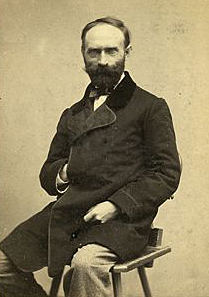|
Eusebius Mandyczewski
Eusebius Mandyczewski ( uk, Євсевій Мандичевський, translit=Yevsevii Mandychevskyi, ro, Eusebie Mandicevschi; 18 August 1857, in Molodiia – 13 August 1929, in Vienna) was a Romanian musicologist, composer, conductor, and teacher. He was an author of numerous musical works and is highly regarded within Austrian, Romanian and Ukrainian music circles. Personal life Eusebius Mandyczewski was born in the village of Bahrynivka (Ukrainian: Багринівка; Romanian: Bahrinești) (then Austria-Hungary; now Ukraine, Hlyboka Raion) on 18 August 1857. His father was a priest and his mother, Veronica, born Popovici, was the sister of Eusebiu Popovici, erudite professor of History at the University of Cernauti and the father of the Bucovinian poet Gheorghe Popovici (known under the pen name of T. Robeanu). His origin according to the father has Slavic affiliations; according to his mother the origin is Romanian. Eusebius had two brothers (Georgiy and Prof. Kostia ... [...More Info...] [...Related Items...] OR: [Wikipedia] [Google] [Baidu] |
Bahrinești
Bahrynivka ( uk, Багринівка; ro, Bahrinești) is a village in Chernivtsi Raion, Chernivtsi Oblast, Ukraine. It belongs to Kamianka rural hromada, one of the hromadas of Ukraine. Until 18 July 2020, Bahrynivka belonged to Hlyboka Raion Hlyboka Raion ( uk, Глибоцький район, ro, Raionul Adâncata ) is a former administrative district of Chernivtsi Oblast located in the historical regions of Bukovina and Hertsa, in western Ukraine. The administrative center was the .... The raion was abolished in July 2020 as part of the administrative reform of Ukraine, which reduced the number of raions of Chernivtsi Oblast to three. The area of Hlyboka Raion was merged into Chernivtsi Raion. References {{Chernivtsi-geo-stub Villages in Chernivtsi Raion ... [...More Info...] [...Related Items...] OR: [Wikipedia] [Google] [Baidu] |
Chernivtsi
Chernivtsi ( uk, Чернівці́}, ; ro, Cernăuți, ; see also other names) is a city in the historical region of Bukovina, which is now divided along the borders of Romania and Ukraine, including this city, which is situated on the upper course of the Prut river in the Southwestern Ukrainian territory. Chernivtsi serves as the administrative center for the Chernivtsi raion, the Chernivtsi urban hromada, and the oblast itself. In 2021, the Chernivtsi population, by estimate, is and the latest census in 2001 was 240,600. The first document that refers to this city dates back to 1408, when Chernivtsi was a town in the region of Moldavia, formerly as a defensive fortification, and became the center of Bukovina in 1488. In 1538, Chernivtsi was under the control of the Ottoman Empire, and the Turkish control lasted for two centuries until 1774, when Austria took control of Bukovina in the aftermath of the Russo-Turkish War. Chernivtsi (known at that time as ) became th ... [...More Info...] [...Related Items...] OR: [Wikipedia] [Google] [Baidu] |
George Grove
Sir George Grove (13 August 182028 May 1900) was an English engineer and writer on music, known as the founding editor of ''Grove's Dictionary of Music and Musicians''. Grove was trained as a civil engineer, and successful in that profession, but his love of music drew him into musical administration. When responsible for the regular orchestral concerts at the Crystal Palace, he wrote a series of programme notes from which eventually grew his musical dictionary. His interest in the music of Franz Schubert, which was neglected in England at that point in the nineteenth century, led him and his friend Arthur Sullivan to go to Vienna in search of undiscovered Schubert manuscripts. Their researches led to their discovery of the lost score of Schubert's ''Rosamunde'' music, several of his symphonies and other music in 1867, leading to a revival of interest in Schubert's work. Grove was the first director of the Royal College of Music, from its foundation in 1883 until his retireme ... [...More Info...] [...Related Items...] OR: [Wikipedia] [Google] [Baidu] |
University Of Leipzig
Leipzig University (german: Universität Leipzig), in Leipzig in Saxony, Germany, is one of the world's oldest universities and the second-oldest university (by consecutive years of existence) in Germany. The university was founded on 2 December 1409 by Frederick I, Elector of Saxony and his brother William II, Margrave of Meissen, and originally comprised the four scholastic faculties. Since its inception, the university has engaged in teaching and research for over 600 years without interruption. Famous alumni include Gottfried Wilhelm von Leibniz, Johann Wolfgang von Goethe, Leopold von Ranke, Friedrich Nietzsche, Robert Schumann, Richard Wagner, Tycho Brahe, Georgius Agricola, Angela Merkel and ten Nobel laureates associated with the university. History Founding and development until 1900 The university was modelled on the University of Prague, from which the German-speaking faculty members withdrew to Leipzig after the Jan Hus crisis and the Decree of Kutná H ... [...More Info...] [...Related Items...] OR: [Wikipedia] [Google] [Baidu] |
Gesellschaft Der Musikfreunde
The Gesellschaft der Musikfreunde in Wien (), also known as the Wiener Musikverein (German for 'Viennese Music Association'), is an Austrian music organization that was founded in 1812 by Joseph Sonnleithner, general secretary of the Court Theatre in Vienna, Austria. Overview Its official charter, drafted in 1814, stated that the purpose of the Gesellschaft was to promote music in all its facets. In early 1818, Franz Schubert was rejected for membership in the Gesellschaft as a professional musician, something that might have furthered his musical career. The Gesellschaft accomplished its goals by sponsoring concerts, founding the Vienna Conservatory in 1819, founding the Wiener Singverein in 1858, constructing the Musikverein building in 1870, and by systematically collecting and archiving noteworthy music-history documents. It is now one of the world's leading music archives. The first music director of the Gesellschaft was Carl Heissler, who was followed by Anton Rubinste ... [...More Info...] [...Related Items...] OR: [Wikipedia] [Google] [Baidu] |
Vienna Singakademie
The Wiener Singakademie is a choir in Vienna, Austria. History As the first mixed choir in Vienna, the Wiener Singakademie was founded in 1858 to establish a "Singübungsanstalt" - an institution for the training of voices. It aims to promote the works of the traditional masters, and include contemporary works. In 1862, the young Johannes Brahms was invited to come to Vienna as the choir’s director. Conductors with whom the choir primarily worked included Gustav Mahler, Richard Strauss and Bruno Walter, the latter becoming the choir’s director for a number of years. Composers who conducted premiere performances of their works with the Wiener Singakademie have included Edvard Grieg, Anton Rubinstein and Pietro Mascagni. After 55 years as an independent choir, the Wiener Singakademie moved in 1913 to the newly opened Wiener Konzerthaus as part of the Wiener Konzerthausgesellschaft. In the 1950s and 1960s the choir was led by Hans Gillesberger. Wilhelm Furtwängler and Pa ... [...More Info...] [...Related Items...] OR: [Wikipedia] [Google] [Baidu] |
Peter Clive
Peter may refer to: People * List of people named Peter, a list of people and fictional characters with the given name * Peter (given name) ** Saint Peter (died 60s), apostle of Jesus, leader of the early Christian Church * Peter (surname), a surname (including a list of people with the name) Culture * Peter (actor) (born 1952), stage name Shinnosuke Ikehata, Japanese dancer and actor * ''Peter'' (album), a 1993 EP by Canadian band Eric's Trip * ''Peter'' (1934 film), a 1934 film directed by Henry Koster * ''Peter'' (2021 film), Marathi language film * "Peter" (''Fringe'' episode), an episode of the television series ''Fringe'' * ''Peter'' (novel), a 1908 book by Francis Hopkinson Smith * "Peter" (short story), an 1892 short story by Willa Cather Animals * Peter, the Lord's cat, cat at Lord's Cricket Ground in London * Peter (chief mouser), Chief Mouser between 1929 and 1946 * Peter II (cat), Chief Mouser between 1946 and 1947 * Peter III (cat), Chief Mouser between 1947 ... [...More Info...] [...Related Items...] OR: [Wikipedia] [Google] [Baidu] |
Gustav Jenner
Gustav Jenner (3 December 1865 – 29 August 1920), born Cornelius Uwe Gustav Jenner was a German composer, conductor and musical scholar. He was the only formal composition pupil of Johannes Brahms. Biography Jenner was born in Keitum on the island of Sylt. His father, a doctor, came from a Scottish family: he claimed descent from Edward Jenner, the discoverer of smallpox vaccine, and was related to the family who built the eponymous Art-Nouveau style department store which is one of the landmarks of Edinburgh's Princes Street. While at school in Kiel, Jenner started to teach himself to write music but, after his father committed suicide in 1884 (he had been accused of abusing female patients), he was befriended and assisted by the poet Klaus Groth, who arranged for him to study with Brahms's old teacher Eduard Marxsen in Hamburg. Marxsen in his turn handed Jenner over to Brahms, with whom he studied in Vienna from February 1888 to 1895, also receiving instruction from Eusebius M ... [...More Info...] [...Related Items...] OR: [Wikipedia] [Google] [Baidu] |
Johannes Brahms
Johannes Brahms (; 7 May 1833 – 3 April 1897) was a German composer, pianist, and conductor of the mid- Romantic period. Born in Hamburg into a Lutheran family, he spent much of his professional life in Vienna. He is sometimes grouped with Johann Sebastian Bach and Ludwig van Beethoven as one of the "Three Bs" of music, a comment originally made by the nineteenth-century conductor Hans von Bülow. Brahms composed for symphony orchestra, chamber ensembles, piano, organ, violin, voice, and chorus. A virtuoso pianist, he premiered many of his own works. He worked with leading performers of his time, including the pianist Clara Schumann and the violinist Joseph Joachim (the three were close friends). Many of his works have become staples of the modern concert repertoire. Brahms has been considered both a traditionalist and an innovator, by his contemporaries and by later writers. His music is rooted in the structures and compositional techniques of the Classical masters. Emb ... [...More Info...] [...Related Items...] OR: [Wikipedia] [Google] [Baidu] |
Robert Fuchs
Robert Fuchs (15 February 1847 – 19 February 1927) was an Austrian composer and music teacher. As Professor of music theory at the Vienna Conservatory, Fuchs taught many notable composers, while he was himself a highly regarded composer in his lifetime. Biography He was born in Frauental, Austria in 1847. He studied at the Vienna Conservatory with Felix Otto Dessoff and Joseph Hellmesberger among others. He eventually secured a teaching position there and was appointed Professor of music theory in 1875. He retained the position until 1912. He died in Vienna in 1927. He was the youngest brother of Johann Nepomuk Fuchs, who was also a composer and an opera conductor. Robert Fuchs taught many notable composers, Notability "Unfailingly tuneful and enjoyable, Robert Fuchs’s piano trios are an easily accessible way to get to know a composer whom Brahms greatly admired," noted the magazine Gramophone. "In his time Fuchs was very highly regarded, with one critic famously p ... [...More Info...] [...Related Items...] OR: [Wikipedia] [Google] [Baidu] |
Martin Gustav Nottebohm
Martin Gustav Nottebohm (12 November 1817, Lüdenscheid, Westphalia – 29 October 1882, Graz) was a pianist, teacher, musical editor and composer who spent most of his career in Vienna. He is particularly celebrated for his studies of Beethoven. Nottebohm studied in Leipzig, where he met Mendelssohn and Schumann, and settled in Vienna in 1846. In 1862 he met Brahms, who became a lifelong friend; Brahms cared for Nottebohm in his last illness and took care of the arrangements for his funeral. Nottebohm was a pioneer researcher in what are now described as 'Beethoven studies'. He sought out Beethoven relics and produced an important 'thematic catalogue' of Beethoven's works. His greatest contribution, however, is probably his series of essays and commentaries on several of the musical 'sketchbooks' in which Beethoven notated and elaborated his initial ideas. The last of Nottebohm's publications on this subject appeared posthumously in 1887, edited by his former pupil Mandyczewsk ... [...More Info...] [...Related Items...] OR: [Wikipedia] [Google] [Baidu] |
Eduard Hanslick
Eduard Hanslick (11 September 18256 August 1904) was an Austrian music critic, aesthetician and historian. Among the leading critics of his time, he was the chief music critic of the ''Neue Freie Presse'' from 1864 until the end of his life. He was a conservative critic and championed absolute music over programmatic music for much of his career. As such, he sided with and promoted the faction of Robert Schumann and Johannes Brahms in the so-called "War of the Romantics", often deriding the works of composers such as Franz Liszt and Richard Wagner. His best known work, the 1854 treatise ''Vom Musikalisch-Schönen'' (''On the Musically Beautiful''), was a landmark in the aesthetics of music and outlines much of his artistic and philosophical beliefs on music. Biography Hanslick was born in Prague (then in the Austrian Empire), the son of Joseph Adolph Hanslik, a bibliographer and music teacher from a German-speaking family, and one of Hanslik's piano pupils, the daughter of a J ... [...More Info...] [...Related Items...] OR: [Wikipedia] [Google] [Baidu] |








